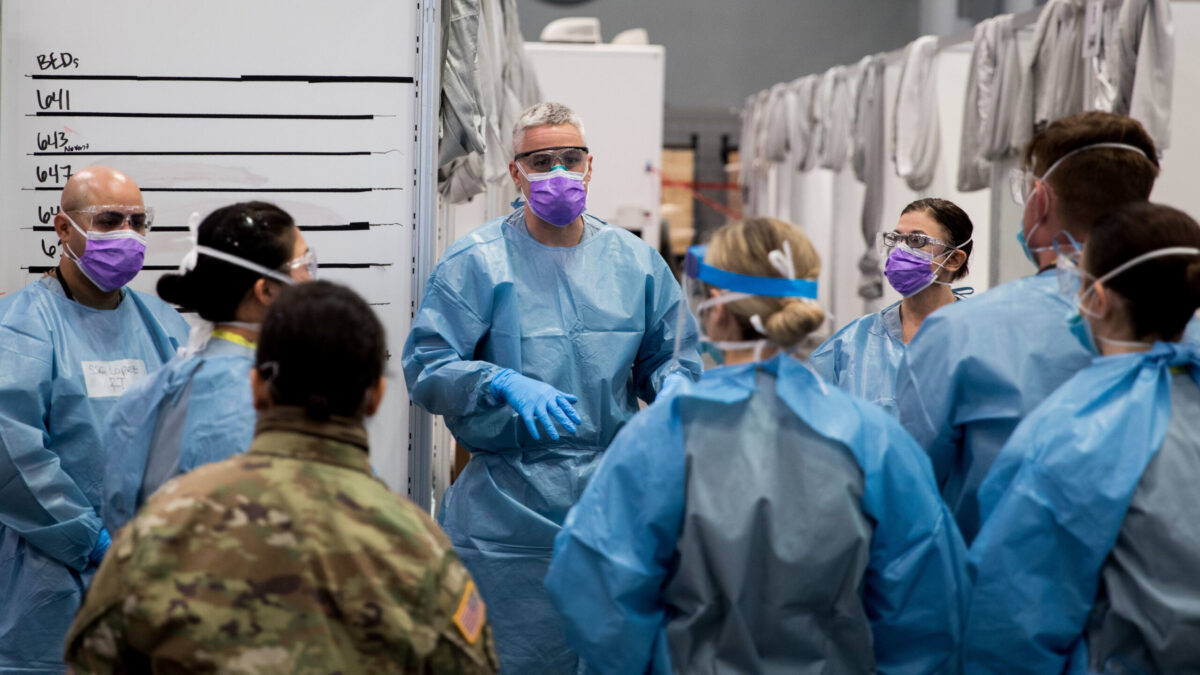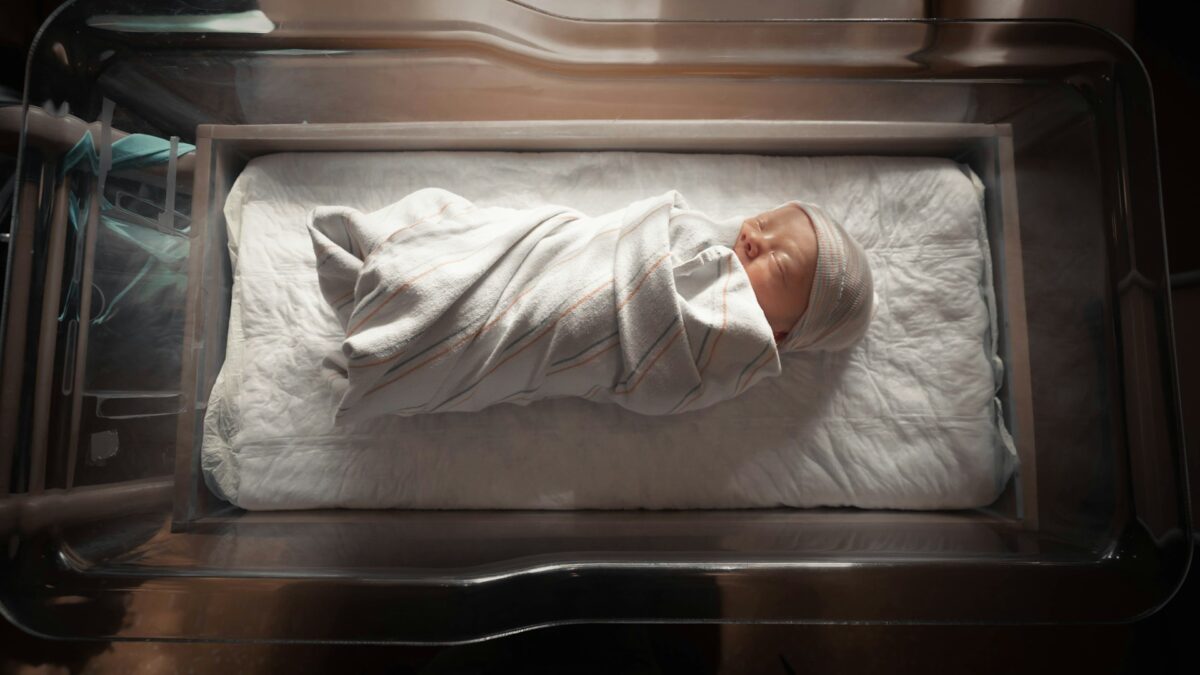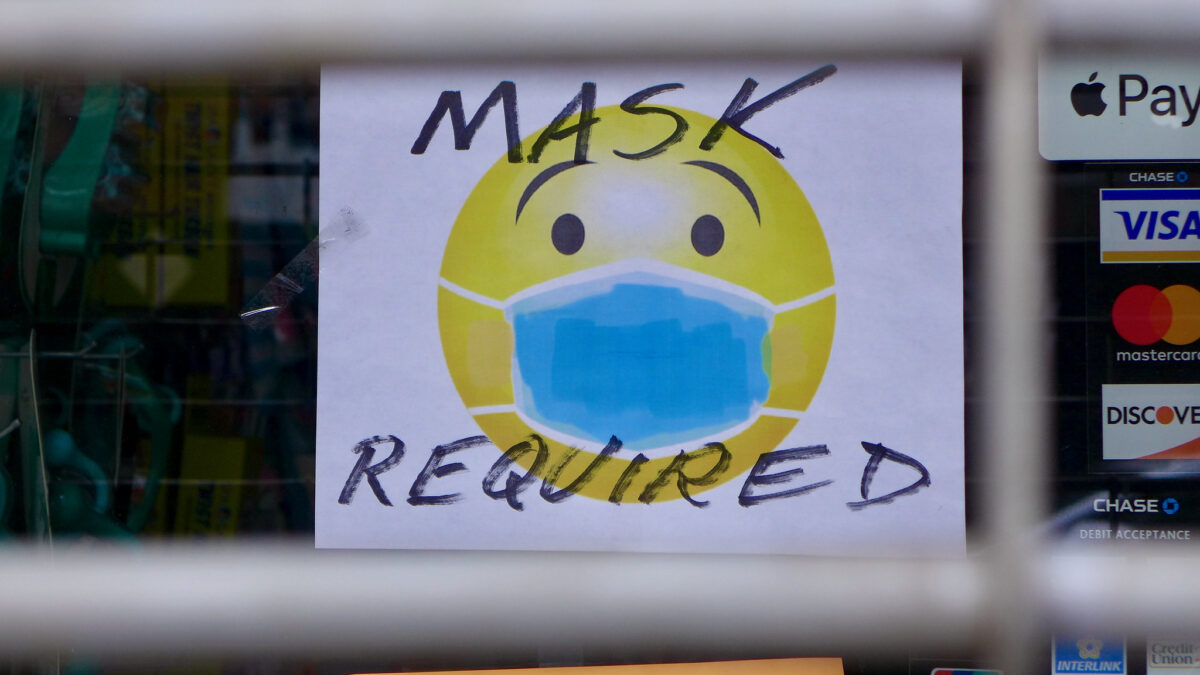“May I never see in the patient anything but a fellow creature of pain,” states the Oath of Maimonides — the Judaic analog to the Hippocratic Oath. Over the past two years, many members of the medical profession have come to reject this key principle of medical ethics, and to see their patients as workplace hazards instead.
As pandemic restrictions are lifted from the public square, most of the nation’s health care facilities remain locked in biohazard mode. Donning face masks to enter a doctor’s office is on track to becoming as permanent as doffing shoes to enter an airport checkpoint.
It is debatable whether either ritual makes society safer. It is certain, however, that enshrining the former in health care means ongoing torment for patients with serious medical conditions and disabilities that are complicated by face mask use.
It would be an understatement to say that my client Laura’s disabilities are complicated by face masks. Laura is a U.S. Air Force veteran who was disabled while in service—not by her government’s enemies, but by her government doctors. In 2007, she was diagnosed with a slightly deviated septum and offered a full nose reconstruction at a military training hospital, free of charge. The nose job got botched.
Fifteen years and a medical retirement later, Laura has had four reconstructive nasal surgeries, and a separate operation to implant Latera stents into both of her nostrils. When she tilts her head back, broken cartilage can be seen pushing out of her left nostril. When she inhales, her nose cartilage visibly collapses on itself and obstructs her airway. Laura also suffers from lung disease, and has a history of pulmonary edema, making breathing even more difficult for her.
Once face masks were mandated in 2020, Laura realized she could not get enough air while wearing any of them. The extra little bit of effort it takes to inhale through a mask’s material causes the cartilage in her nose to collapse, closing off her airway like a flapper valve on an air pump. While using a mask, she can breathe out, but not in.
The inability to get a full breath of air, known medically as dyspnea or air hunger, is an utterly terrifying experience. Waterboarding takes advantage of the same primal panic response. According to pulmonologists at Harvard Medical School, “Because dyspn[ea] is seldom experienced by healthy people, it can be hard for clinicians and researchers to comprehend the patient’s experience.” To a healthy person, a mask may be a nuisance. To someone like Laura, it is a torture device.
Denial of Care
Laura has also been diagnosed with major and persistent depression, and as a result deals with anxiety and other mood disturbances as baseline conditions in her daily life. It is well-known that healthful breathing helps alleviate these conditions, so it is unsurprising that Laura’s mask-induced dyspnea significantly worsens them.
Laura’s disabilities have made frequent in-person health-care visits during the pandemic unavoidable; yet being forced to wear a face mask makes each such visit unbearable. On several occasions, she has had to leave before finishing medical treatment because she is simply unable to breathe.
So far, four different doctors at three different hospitals in the Washington, D.C. area—Sharon Baratz at the D.C. Veterans Affairs Medical Center, Joshua Tierney and Jeanne Mitchell at the Walter Reed National Military Medical Center, and Eugenia Chu at the Georgetown University Hospital—have refused to treat Laura unless she wears a face mask.
“I try everything you doctors tell me to help me breathe and now I’m asking you, telling you that I cannot wear a mask [due to] my disability. I’ve tried for a year! I’ve stayed home,” Laura wrote to Baratz a year ago. “Now it’s time for some understanding and respect to go my way.”
“I understand that masks are uncomfortable,” Baratz replied. “Due to the need to provide safety to you and all of our Veterans and staff in the Medical Center however, I cannot issue a mask waiver.”
Laura pushed back: “Why not order a breathing test for first thing tomorrow? I’m willing to fight an hour and a half traffic for that test. If my breathing is stifled you issue a mask waiver immediately. I think that is a great compromise don’t you?”
“I will advise the leadership in the Women’s Clinic and if you would like to choose an alternate provider they can assist you,” replied Baratz.
Creatures of Pain
The suffering Laura has endured as a consequence of having to use face masks was the primary motivating force behind my decision to represent Laura pro bono. Indeed, there are currently untold numbers of other people with breathing disabilities whose health-care providers are conditioning their access to lifesaving medical treatment on submission to harmful and unnecessary face mask use.
One of my clients had to watch her four-year-old child being forcibly masked in the emergency room by nurses in hazmat suits during his first-ever asthma attack. I have stopped taking new clients months ago, unable to meet the demand from other people like Laura, who are always reaching out for help.
Implicit in the Oath of Maimonides and similar codes of medical ethics is the recognition that, like their patients, doctors are also creatures of pain. When faced with a common danger, like war or pandemic, some doctors translate this recognition into uncommon self-sacrifice. Many others, as is common to all creatures, opt for self-preservation.
In 1900, U.S. Army doctors under the leadership of Major Walter Reed infected themselves with yellow fever, allowing them to determine that the disease is transmitted by mosquitoes, which ultimately helped to eradicate it from the United States. One, Dr. Jesse Lazear, did not survive the self-experiment. He is commemorated in an inscription at Johns Hopkins School of Medicine, his alma mater: “With more than the courage and devotion of the soldier, he risked and lost his life to show how a fearful pestilence is communicated and how its ravages may be prevented.”
In 2022, doctors at the elite military hospital named in honor of Major Reed are forcing disabled veterans who cannot breathe to suffocate under face masks that do not work, so as to allegedly slightly mitigate the risk of catching from those veterans a far less fearful disease than yellow fever.
Across the country, misplaced priorities have dishonored the medical profession, and have turned it blind to medical patients’ pain. Stopping mandatory patient masking in health care facilities would be a small sacrifice of personal safety by the medical profession’s members, but a large step toward restoring the honor it lost in its Covid-19 pandemic response.









